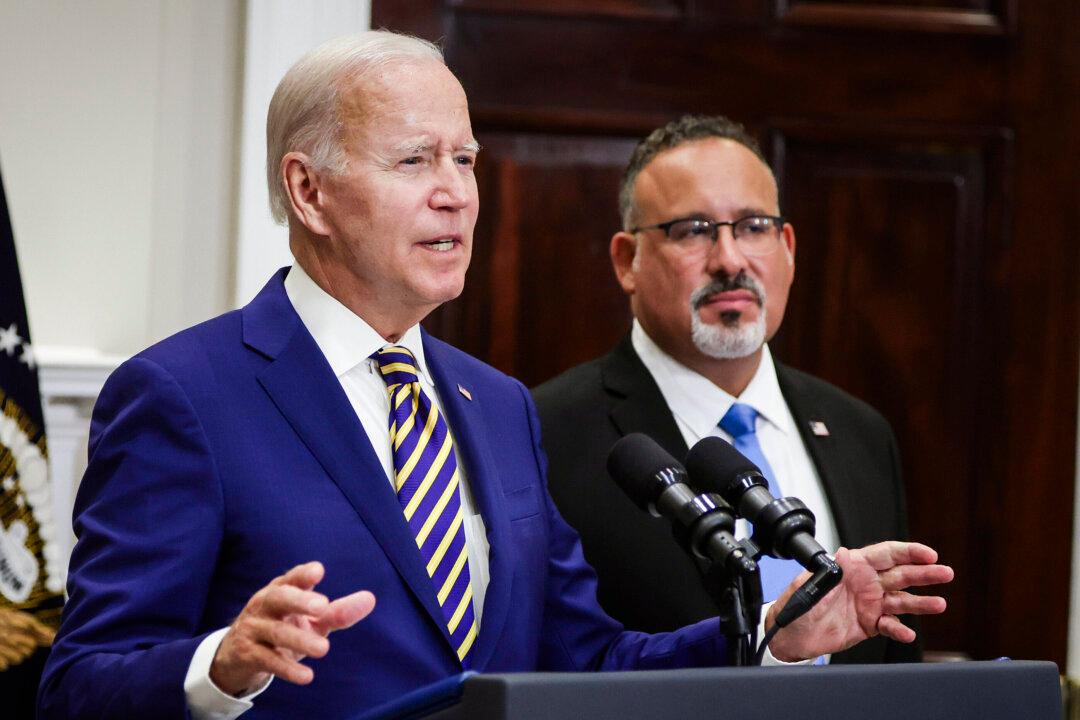President Joe Biden asked the Supreme Court on Aug. 23 to reinstate a $475 billion student loan relief plan two weeks after an appeals court blocked the program.
The government’s emergency application in the heavily litigated case was filed on Aug. 13 after the U.S. Court of Appeals for the Eighth Circuit on Aug. 9 temporarily paused the Saving on a Valuable Education (SAVE) plan while the litigation over it continues. The case before the Supreme Court is known as Biden v. Missouri.





